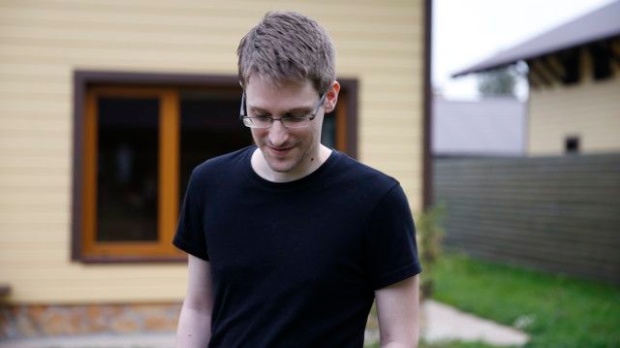 Back to selection
Back to selection
CPH:DOX Goes Live (and Virtual): Online Talks and Debates
 Edward Snowden, from CITIZENFOUR
Edward Snowden, from CITIZENFOUR CPH:DOX, having already established itself as one of the most cutting-edge festivals on the circuit, can now take the prize for the ballsiest fest around. As a global pandemic causes cancellations and postponements from SXSW to Tribeca on these shores, the feisty Copenhagen International Documentary Festival has nevertheless refused to concede defeat. Within hours of the Danish government announcing restrictions on public gatherings, the festival made an announcement of its own. CPH:DOX 2020 would keep calm, carry on, and simply pivot to the virtual world. And as manmade “natural” disasters are primed to become the new normal, it might also be ushering in a brand new festival world.
And while the new virtual cinema (an eclectic selection of 40 films from the program, with more to come) is only accessible to those based in Denmark (though at 6 euros per film it’s a socially-isolating family bargain if you are), and live broadcasts from the five-day CPH:CONFERENCE strictly for accredited guests, the festival has decided to make its “first-ever digital debate programme” something for everyone. CPH:DOX Live is comprised of 15 debates “that can be experienced for free and live throughout the festival at 4pm and 8pm daily. You can follow the debate either through a link on our website or on Facebook, where the debates will be broadcast live.” (Though the talks are paired with specific docs, no film watching is required.)
So at the festival’s urging to “Make yourself comfortable on the couch, while enjoying these important conversations of a world that keeps on revolving, even when we need to stay at home,” I’ve picked out a handful of mind-engaging debates I can’t wait to tune in on in order to tune out that head-spinning world.
Black Holes
At 8PM on March 20th, I hope to learn the answer to the question, “What can black holes tell us about humanity?” Harvard professor Peter Galison, the director of The Edge of All We Know — an exploration of the black hole pursuit by both the Event Horizon Telescope and Stephen Hawking and his team == will be in conversation with astrophysicists Marianne Vestergaard and Brooke Simmons. The event will also serve as the “online virtual opening night” of the CPH:SCIENCE program. A fitting start for the unknown future of humanity, too.
Crazy, Not Insane
Alex Gibney’s latest delves into the world of murderers through the life’s work of forensic psychiatrist Dorothy Otnow Lewis, who’s interviewed everyone from Ted Bundy, to Arthur Shawcross to Joel Rifkin. And at 4PM on March 21st, the doc will serve as a launching pad for Copenhagen University senior physician and senior researcher Anne Mette Brandt-Christensen and Janni Pedersen, a crime reporter and journalist, to challenge the conventional wisdom surrounding the brains of those who choose to kill.
Citizen K
While a Gibney double feature will only be a possibility for those in Denmark, the chance to hear from this film’s oligarch star is available to all. At 8PM on March 22nd the Russian dissident Mikhail Khodorkovsky, sentenced to nearly a decade in prison after publicly challenging the corrupt Russian government back in 2003, will be chatting with Leif Daviden, a Russia expert and author, about — what else? –Putin’s Russia. Though also, one hopes, about how exactly a ’90s gangster capitalist became a current champion of democracy and human rights.
Citizenfour and AI
Though Laura Poitras’s 2015 Oscar-winner won’t be screened, on March 23rd at 8PM another dissident and champion of democracy and human rights with (forced) ties to Russia can be beamed in via live-stream to a smartphone near you. Yes, the iconic whistleblower Edward Snowden is set to discuss how AI is impacting the global surveillance state with science and tech correspondent Henrik Moltke. And if you happen to be in Denmark, you can pair this potentially Orwellian talk with Tonje Hessen Schei’s 2019 film iHuman, which explores how artificial intelligence might curb climate change and save the world – or end society as we know it.
Oliver Sacks
Finally, Ric Burns’s Oliver Sacks: His Own Life, an exhaustive cinematic dissection of the famed neurologist and author, forms the basis of this conversation scheduled for March 24th at 8PM. The University of Copenhagen’s associate professor of psychology Signe Allerup Vangkilde and neuroscientist Troels W. Kjær will fill us in on how Sacks changed the way we see the brain – and possibly humankind itself. (A true meeting of the minds to be sure.)
